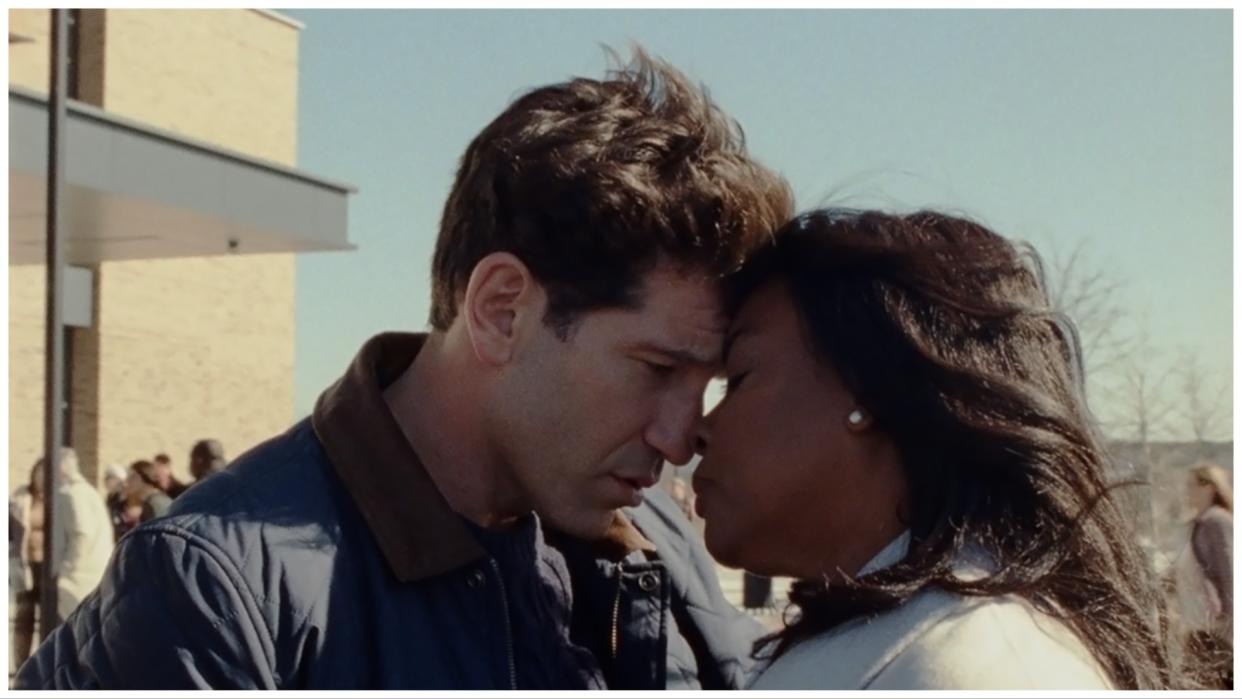Origin review: "Ava DuVernay's powerful conversation-starter"

- Oops!Something went wrong.Please try again later.
Ava DuVernay’s adaptation of Isabel Wilkerson’s 2020 bestseller Caste: The Origins of Our Discontents doesn’t attempt to transcribe the academic’s theory on reframing America’s historical and current racism through the lens of the Indian caste system.
Rather, DuVernay (Selma, A Wrinkle in Time) attempts to unpick Wilkerson’s fascinating delve into global history by telling the story of the creation of the book, dovetailing the ‘writer’s journey’, personal loss, and recent events with exposure to Dalit trailblazers, anthropological pioneers, Nazi policy-making, and a child denied access to a swimming pool. The result is a film that works as a broad educational tool, a primer for further exploration, and a tender portrait of grief - but also one that might have been just as effective as a documentary.
Opening with the murder of Trayvon Martin (the 14-year-old boy shot dead by George Zimmerman in 2012), Origin then introduces us to Pulitzer Prize-winning author Wilkerson (Aunjanue Ellis-Taylor). Looking to begin a new book, she’s reluctantly fascinated by the Trayvon case – heartbroken at the unnecessary death of another young Black man, but intrigued by her mother’s assertion that behaviour protocols should have been observed. The idea that society has engendered an understanding and acceptance of hierarchical lore in the global majority sets Wilkerson off on a voyage of discovery, talking to experts, digging through libraries, and uncovering links in shared trauma, ideologies, and social structures.
She’s supported by her lovely husband (Jon Bernthal), a self-aware, sweet man who first flirts with her via self-confessed mansplaining and cherishes both her and her ageing Ma. Her smart cousin (Niecy Nash) holds her accountable, whilst her encouraging book editor (Vera Farmiga) spurs on her detective work. But when Isobel experiences a series of devastating personal losses, the grief that cloaks her gives her mission greater meaning. And her investigation allows her to work through that bereavement – finding a way to say goodbye to loved ones, as well as to antiquated syntax and attitudes to race relations.
It’s an approach that doesn’t always work. Watching someone writing a book (chatting about chapter headings with publishers, leafing through research tomes, figuring out her story beats on a whiteboard) isn’t as engaging as the historical intrigues she presents. During her travels, Wilkerson shows that the Nazis used Jim Crow as a blueprint for their social-cleansing laws; that the lowest of the Indian caste system, Dalit people, are treated like the excrement they wade through; that all systems of oppression and subjugation share tenets such as endogamy to erase and contain.
She highlights the work of Allison and William Davis, Burleigh and Mary Gardner, and B.R. Ambedkar, as well as the indignities suffered by Al Bright and August Landmesser and Irma Eckler – all of whom you’ll want to Google post-credits. Though the theoretical side of the story serves as a taster for audience self-discovery, the condensing of Wilkerson’s treatise sometimes reduces it to repetition and bluntness.
But then DuVerney is attempting to connect to the widest audience possible, and a vast range of previous knowledge. This film is for the grumpy plumber (Nick Offerman) in the MAGA cap who turns up to fix a leak in Wilkerson’s house, as well as the Berlin academic (Connie Nielsen) who argues the semantics of extermination and subjugation. That plumber is part of the most emotionally resonant aspect of the film – the tender, relatable human experience threaded throughout. DuVernay captures the universal experience of loss: the regrets, the suffocating sorrow.
One family unit is presented so vibrantly that Wilkerson’s mourning is felt acutely, even within just half an hour spent with them. That link to our shared humanity reappears throughout the film alongside an emotional score that keeps viewers’ hearts open and raw. By the time a skinny, nine-year-old boy is cowering on a lilo in a small yet shameful historical incident, the floodgates will truly open.
Origin's release date is currently TBC.

